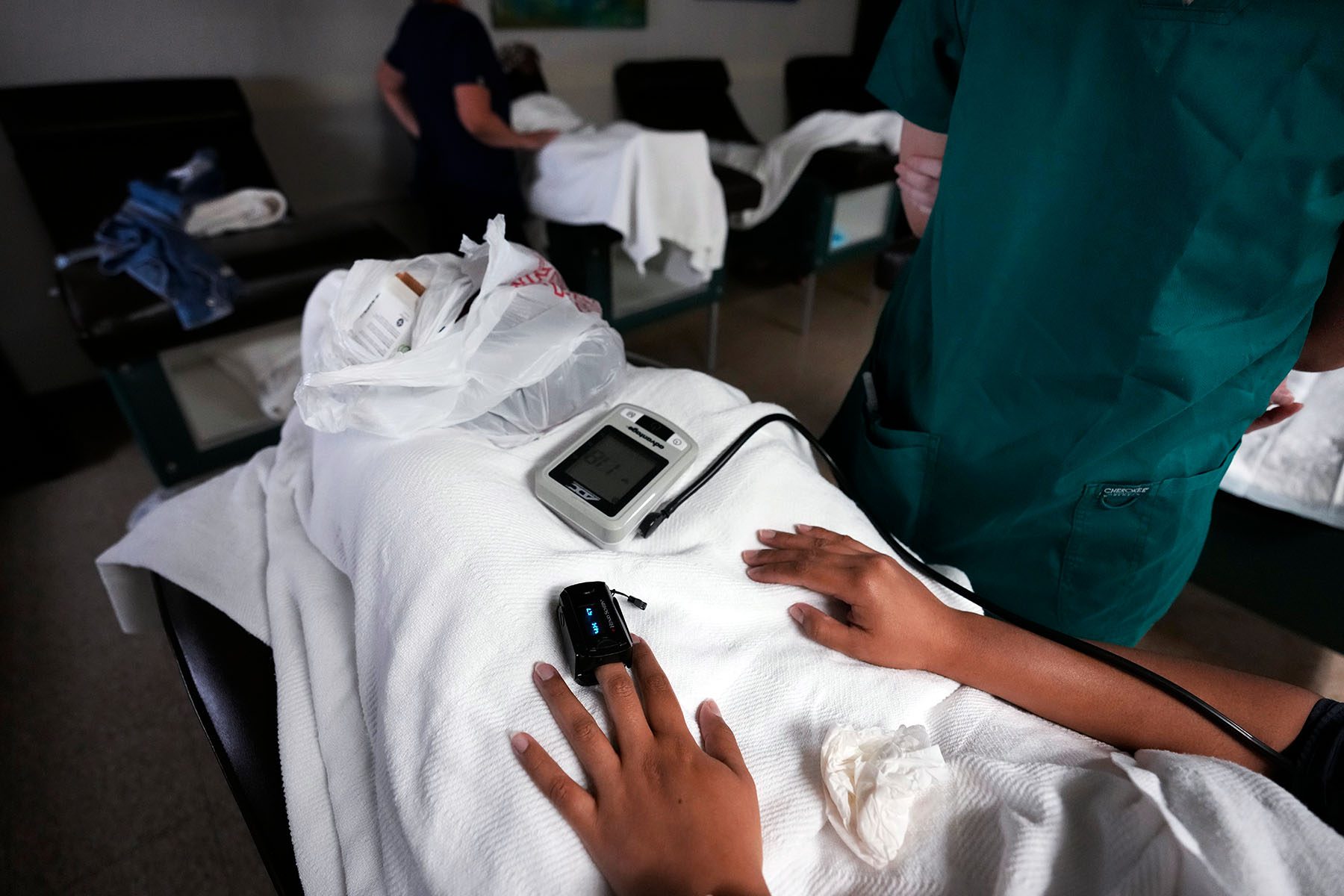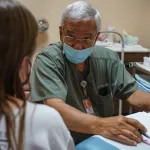Clinics in states surrounding Texas are still struggling to absorb displaced patients months after the state’s six-week abortion ban went into effect.
In Oklahoma, Kansas, New Mexico, Colorado, Louisiana and southern Nevada, clinics have all continued to see a dramatic surge in patients, representatives told The 19th, with some treating more than twice the number of people they saw before the Texas law known as Senate Bill 8 took effect in September.
“We’re concerned. We’ve been working our tails off, to tell you the truth,” said Kathaleen Pittman, the administrator for Hope Medical Group, an abortion clinic in Shreveport, Louisiana, where the number of Texas-based patients has skyrocketed since September, now constituting more than half of the people they see, she estimated. “I don’t think running the clinic has been this difficult since I took over in 2010. This has been the most challenging.”
But even as these clinics are stretched to the limit, leaders do not know what kinds of services they will be able to provide, or whether they will be able to stay open at all. This summer, the Supreme Court is expected to make a decision in Dobbs v. Jackson Women’s Health Organization that could overturn Roe v. Wade, the 1973 case that guaranteed the right to an abortion. Oklahoma and Louisiana both have “trigger laws” in place that would, if implemented, outlaw all abortions if Roe v. Wade was to be overturned. A similar law is in place in nearby Mississippi, and Georgia would ban abortion after six weeks if Roe was overturned. Heightened abortion restrictions are expected to become law in both Arizona and Florida this year.
“If Roe falls, that same day abortion is illegal in Oklahoma. There’s a lot of contingency and uncertainty right now,” said Zach Gingrich-Gaylord, a spokesperson for Trust Women, which operates abortion clinics in Oklahoma City and Wichita, Kansas.
Trust Women has hired more doctors and other staff to account for the increase in demand. In both clinics, the majority of patients now come from out of state, Gingrich-Gaylord said. Most people coming to the Oklahoma clinic are from Texas, and most people coming to Wichita are Oklahomans who, because of the influx of Texas patients, weren’t able to get an appointment in their home state.
The clinics have more than doubled how many days they offer abortions, increasing from two to four or even five. About 40 to 50 people are scheduled each day, compared with 30 or 40 before SB 8 took effect. The upswell in demand means patients might have to wait two weeks to be seen. Both states allow abortions up until 22 weeks of pregnancy, though later treatment can mean a more complicated, more expensive procedure.
“Our call volume has been probably around double or triple of what it was before SB 8. We just have too many calls to even take all of them. People are slipping through the cracks,” Gingrich-Gaylord said.
This past November, the most recent month for which Pittman has had time to crunch data, more than 60 percent of Hope Medical’s abortion patients made the trip to Louisiana from Texas. She suspects the percentage is similar now. Patients are driving as far as nine hours each way to come to Shreveport. The clinic has extended its hours, and is working six days a week. But there’s a limit to how many patients they can absorb.
“We are a relatively small clinic: limited staff, limited space,” she said. “I can add on additional staff, but there’s only so much we can do.”
At one point, patients seeking appointments couldn’t find anything available for as much as six weeks. (In Louisiana, abortions are available up until 22 weeks of pregnancy.) The clinic has now stopped booking visits that far out. Instead, when someone calls, the staff will take their information — including how far along they are in their pregnancy — and try to call back later if an appointment opens up. But that process still may take two or three weeks. If Hope Medical doesn’t have the bandwidth to see someone, staff will recommend another clinic, but that could require a patient to travel even further.
The delays mean they are having to treat more patients later in pregnancy, Pittman said. That has, for many, eliminated the option of a medication abortion — a two-pill regimen that is cheaper and often less invasive than the surgical procedure, but that can only be done up to about 10 weeks.
The situation is slightly different west of Texas. Colorado and New Mexico don’t have the same “trigger laws” as Louisiana or Oklahoma, and they are currently led by unified Democratic governments. Still, clinics say they are overwhelmed, and have been since September 1.
“It’s clearly still having an impact. We haven’t seen [the patient surge] die down or hit a lull,” said Neta Meltzer, a spokesperson for Planned Parenthood Rocky Mountains, which operates clinics in New Mexico, Colorado and part of Nevada. “We’re almost half a year into a situation where one of the largest states in our country has decimated access. The impact is real, and it’s continuing.”
In Albuquerque, New Mexico, clinics have seen double or triple the number of patients they previously would have, said Dr. Eve Espey, who chairs the OB-GYN department at the University of New Mexico and founded its center for reproductive health.
They’ve increased staffing, added more appointments and cut back on other family planning services to account for the increase in patients seeking abortions. They’ve had to make “challenging decisions,” she said, for those who fly in from out-of-state and don’t have much time: They are prepping patients in an afternoon before a procedure, even if they would benefit from overnight care the day prior.
And both east and west, the past month’s dramatic spike in COVID-19 cases has added another layer of worry. At Hope Medical, doctors and other staff have had to repeatedly isolate because of COVID-19 exposures, further straining the clinic’s capacity. Patients have had to reschedule abortions after testing positive for the virus. In Colorado, out-of-state patients have had to move appointments after their flights were canceled because airline employees were ill, or because of seasonal snowstorms.
“I can’t even express how challenging it has been,” said Dr. Kristina Tocce, a physician in Colorado and the medical director for Planned Parenthood Rocky Mountains, who has had numerous patients have to reschedule their abortions because of flight cancellations. “It’s been a truly surreal time, and we’re all very apprehensive about what’s coming up next.”







